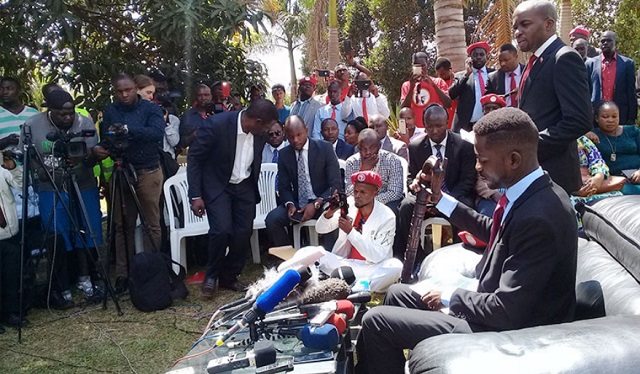
Opposition politicians and human rights activists are concerned about a recent directive by police to its district and division police commanders to ensure that all political meetings being held in private homes get dispersed. The activists want it challenged and opposition politicians are vowing to defy it.
Betty Aol Ocan, the Leader of Opposition in Parliament told The Independent that the opposition politicians find the police’s application of the public order management law frustrating. She says when legislators are making laws, the legislation is supposed to be ‘blind’ and it should apply to everyone but in Uganda, Police interpret this particular law depending on which political party someone belongs.
“The standards for people who belong to the ruling party, the NRM, are quite different from those who belong to the Opposition,” Ocan said, “We are working under difficult circumstances; you can call it a military dictatorship.”
Ocan said the Public Order Management Act says the people intending to hold public meetings should notify the police in good time and then it is up to the police to provide security or not.
“Now the police have turned this into (seeking) permission,” she told The Independent.
Muhammad Muwanga Kivumbi, the MP for Butambala County told The Independent on Jan. 13 that the power to assemble and associate is generally inherent and so police cannot say that private meetings are within the confines of the Public Order Management Act.
“Even if you are an enthusiastic and zealous police officer, your actions would be bordering on stupidity,” Kivumbi said, “That is the only way I can put it.”
Muwanga says laws have to be consistent with the Constitution which is the supreme law of the country.
Muwanga is an authority of sorts on this topic because, on May 27, 2008, the Constitutional Court made a landmark judgment in a case he filed. In the Muwanga Kivumbi v Attorney General, Muwanga went to the Constitutional Court seeking an interpretation of the law when he noticed police consistently used a provision in the Police Act to regulate political rallies or any form of assembly.
At the time, Section 32 of the Police Act required Ugandans to seek permission from the Inspector General of Police before exercising the right to demonstrate and assemble which was a contradiction of Article 29 of the Constitution.





